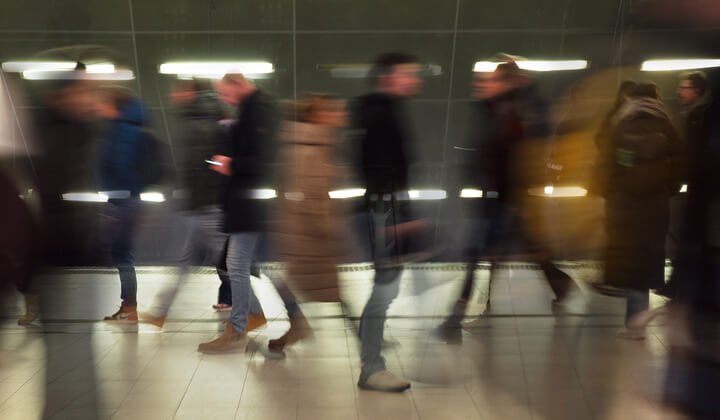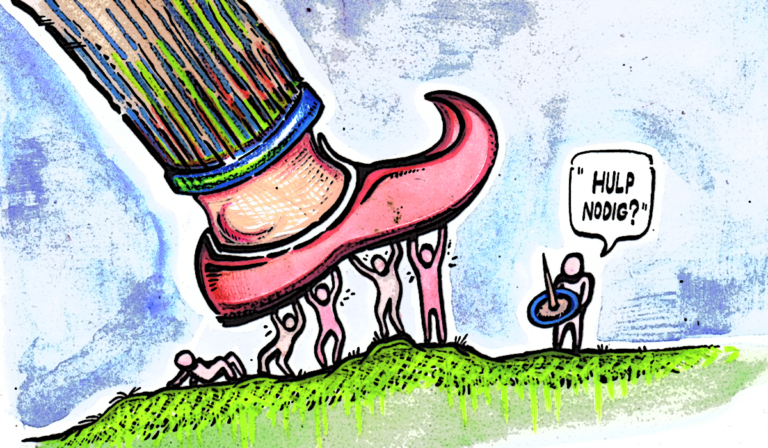In the final article of her series, Laura Illeris shares what she learned from her month long investigation of religious university students and offers a reflection on religion, diversity, and tolerance among young people in Amsterdam. “Our need to define ourselves and others sometimes leads to boundaries being drawn that make us blind to what we have in common.”
I was initially disappointed when Thijl Sunier, professor of Cultural Anthropology at the VU, could not give me one definition of religion. But after a month of speaking to students both religious and non-religious, and experts, I started to see how confining it would be to define religion in only one way.
Religion and being religious clearly means a myriad of different things to different people. While I spoke only to a small fraction of religious students in Amsterdam, they hold a diverse set of beliefs and had different and unique reasons for believing or practicing as they do. Still, I found many similarities in core beliefs and ways of living that perhaps speak more to the differences between religious and nonreligious people, than between those who pray to different Gods.
If you ignore which holy book someone is carrying with them, people of different religions have a lot in common
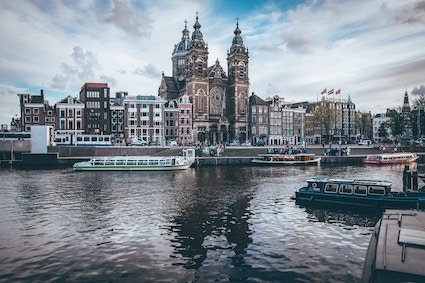
False divisions and shared experiences
Week by week, I interviewed religious students from different religious backgrounds: Christian, Jewish, and Muslim. It soon became clear that it had not been necessary to make this division by religion. If you ignore which holy book someone is carrying with them, when it comes to the experience of being religious it seemed that people of different religions often have a lot in common.
The most obvious shared experience is believing in something greater than the physical. This is by no means limited to having faith in something that cannot be seen, but also includes looking beyond personal needs and contributing to the world, and to a larger, guided order. Often, this is what gives these students a sense of purpose and awareness of their intentions and behavior towards themselves and others.

Most of the students emphasize that religion makes them look inward before anything else. Raja Ramzan, a 26-year-old Muslim, says: “The most important thing for me is that I improve my character.” One anonymous student from a Bible study group said that a big part of her faith came through “the realization that I am imperfect.”
Religion also provides a safety net through community and identity, and the knowledge that you share certain beliefs or values with others. But what is needed to believe, or to have faith? For Daniel Asher, 22, it is “seeing that not all truth is factual.” Asher, originally disillusioned with religion, tried to create his own rulebook for life but found the task too hard. Eventually, he came to the conclusion that it was easier to take an existing source material as a starting point and turned to Judaism.
Many people think that being religious means being brainwashed, not thinking for yourself, and having outdated beliefs
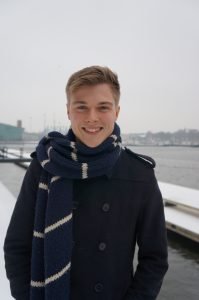
Barry Vingerling, 26, who also converted to Judaism, explained the submission to a value system through an analogy of the Dutch legal system. If we live in the Netherlands, we all adhere to Dutch law. While we may not agree with every specific law, we still subscribe and submit to the legal system as a whole, because we generally see it as being for the greater good. Vingerling feels similarly about Judaism. “That’s the system I choose in my personal life.”
Across religions, people also share similar struggles. Living in cities in the Randstad, all the students I interviewed are very aware that being religious makes them a minority. They had all in one way or another experienced the people around them having very narrow ideas about what it means to be religious. Many people think that religion is something that should be discouraged.
They think that being religious means being brainwashed, not thinking for yourself, and having outdated beliefs. People do not understand how religious beliefs are combined with science and modernity.
While many young people today shun religion, the human inclination to search for meaning does not dissipate, and it is precisely this yearning that still leads people to religion. As young people, they often have a strong awareness of the ways in which old religious institutions are alienating some people but they find ways to practice their religion in a way that makes sense for them. Some people subscribe to most of the doctrines given and others simply pick out the things they agree with or want to apply to their life.
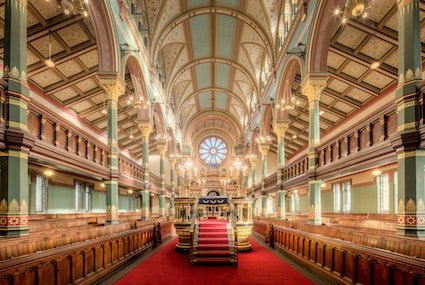
Dual experiences of living in Amsterdam
Living in Amsterdam, a city housing large demographics of both secular and religious individuals (62 percent are unaffiliated while 38 percent are religious), presents an interesting opportunity to face different belief systems and practices head on to reassess and reaffirm personal beliefs. The different religious students who live here have a dual view of how the city shapes their religious experience.
People in Amsterdam are highly tolerant and respect each other’s beliefs, but often fail to actually engage with beliefs different to their own
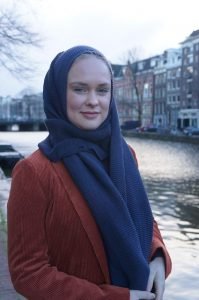
These students expressed that they are glad to be living in a place that is diverse and see little discrimination on the basis of religion, especially when comparing it to other places in the Netherlands or Europe. Joanne Boerema, a 28-year-old Muslim says: “I feel free here.” Similarly, others said that, living in a secular society, practicing their religion is one way that they utilize their freedom of choice.
On the other hand, and without diminishing the positive experiences of diversity and tolerance in Amsterdam, religious students also experience some hardships living in such secularized surroundings. As Mashhour Hosny, a 21-year-old Muslim put it, “in Amsterdam you are literally exposed to everything from A to Z.” Some things, he said, have the potential to “drive you the other way”. Not only that, but sometimes the interviewees feel that they have to defend their religious practices or beliefs. However, in a lot of cases having their views tested and being exposed to alternative ways of life ultimately strengthens people’s faith.
The policy of tolerance

Although Amsterdam is both religiously and culturally diverse, many feel that in our highly secularised society religion is seen as something private and not something to be discussed openly. They say that separation of church and state means that religion is tolerated and accepted, as long as it remains within a certain boundary.
Sarah Ashworth, a 19-year-old Christian and Amsterdam native, thinks that people in this city are highly tolerant and respect each other’s beliefs, but often fail to actually engage with beliefs different to their own. Others, including the Catholic biology professor Daan van Schalkwijk, have a similar view. Schalkwijk feels that people have a sentiment of “religion is fine, but don’t come near me,” which he sees as contributing to the lack of constructive dialogue about religion.
Our need to define ourselves and others sometimes leads to boundaries being drawn that make us blind to what we have in common
In this way, being in the minority can make young religious people feel limited in their ability to express a certain side of themselves. Several Christian students, for example, said that they are scared to, or have to think twice about sharing with their fellow classmates at university that they are Christian.
So while tolerance is a start it does not necessarily promote understanding, interaction, or dialogue. Jonathan Gill, chairman of an independent synagogue in Amsterdam, feels that tolerance is a poor model for social interaction. “It means that there is still someone in power deciding what we should tolerate.” Even so, tolerance is not universal as some religious groups, in particular Muslims and Jews still face threats.

More than meets the eye
While I see a lot of overlap in the experiences of young people of different religions, I see just as many differences in what, to what extent, and why people subscribe to a particular religion. In the future, when I learn that someone is Christian, Muslim, or Jewish I will now assume very little beyond which holy book they read.
Through only a brief investigation, I have been able to confirm something that in principle I already knew. However, for me, it was a real practical reminder. Our need to define ourselves and others sometimes leads to boundaries being drawn that make us blind to what we have in common and what we do not, but there is always something more than meets the eye.
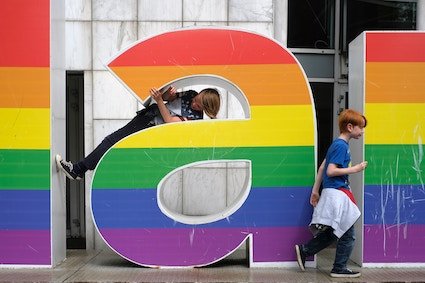
Laura Illeris (22) from Denmark is an international student in Amsterdam and is part of the international team of Red Pers. This is the last article in her series on religious students in Amsterdam. Read the introduction and her articles on Christianity, Judaism and Islam.

